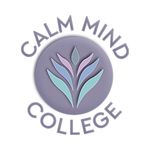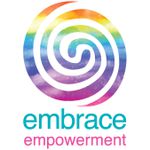What is life coaching?
Life coaching focuses on helping individuals improve their lives through goal setting, motivation and accountability. Using a process of self-discovery and action planning, life coaches help their clients break free of their limiting thoughts and reach their full potential. They are trained in a wide variety of life coaching techniques, including values clarification and therapeutic techniques, to help their clients work through their problems in a supportive environment and achieve both short-term and long-term improvements. Some common issues that life coaching can help with include:
- Loneliness or isolation
- Traumatic experiences
- Struggles with family relationships
- Grief and bereavement
- Addictions
- Career advancement
- Financial problems
- Finding love and a meaningful relationship
Obtaining membership in a professional organisation, such as those listed below, will help certified life coaches in the Melbourne University area enhance their credibility and access a trove of educational tools and career opportunities, while staying current with the latest industry news.
- International Coaching Federation (ICF)
- International Institute for Complementary Therapists (IICT)
- Australian Counselling Association (ACA)

Should you study life coaching?
There are lots of benefits to studying life coaching. As well as learning various techniques to be able to help others achieve their goals in life, taking a life coaching course will ensure that you are always in demand. People often turn to life coaches when times are tough to improve their career prospects. If you're a good coach, you will gain more clients and prosper in your career faster. Moreover, studying life coaching will allow you to cultivate the necessary interpersonal skills, such as the following:
- Excellent communication skills are vital so that you can express yourself clearly in order to guide your clients through their thoughts in a constructive way that builds on their strengths.
- Good listening skills are essential too, as clients want to feel heard when communicating their negative emotions.
- Confidence and open-mindedness allow you to take on any challenge and lead an extremely fulfilling life.
- Self-awareness enables you to assist your clients towards what they really want in their lives by developing their emotional intelligence.
- Empathy and patience will help you to assist people in areas in their lives that are causing them difficulty.
If these qualities match your own, continue reading to learn about the courses you can take to become a qualified life coach.
What are the course and study options for life coaching in Melbourne University?
Life coaching courses can be found easily as there are many universities within the Melbourne University area that offer various training programs to meet the individual needs of every student. You can study on campus, take an online life coaching course, or choose a blended learning approach. Part-time or full-time study options are also available. If you are busy most of the week, you can choose a course that allows you to study only on the weekends or at night.
The best way to find a course you want is to have a clear idea of what you want from it. A 6-month training program will help you become a better leader in society or improve your confidence so you are ready to face whatever life brings.
To become a professional life coach, you must obtain a nationally accredited qualification from an authorised institution. The course content varies slightly depending on the provider, but all follow the same core syllabus. Topics include positive psychology, goal setting, and effective communication. Depending on the mode of study you choose, this program usually takes 12 to 24 months to complete.
You can find high-quality life coaching courses at the top of the page. For more information about the curriculum, instructors and course fees of a provider you are interested in, feel free to contact them directly.
What happens after you complete your life coaching course?
Since life coaches spend so much time focusing on honing their self-development, they naturally develop many skills that can be used in many areas of life. This makes graduates of life coaching courses extremely employable. And since they possess key interpersonal skills, they tend to get promoted faster than non-coaches.
Most life coaches work for a private company, helping employees to achieve their career goals. Others use their skills in health and wellness organisations or hold retreats to improve the lives of people who are seeking for a change.
As a life coach, you can also work in private practice and manage your own schedule, while helping people improve their lives. You can even offer online life coaching sessions. Public speaking and workshops are other worthwhile possibilities. By listing your practice on Natural Therapy Pages, you can receive support with your marketing needs and find success more quickly.
Obtaining your qualification as a life coach can also offer you the opportunity to qualify in other complementary therapies such as:










